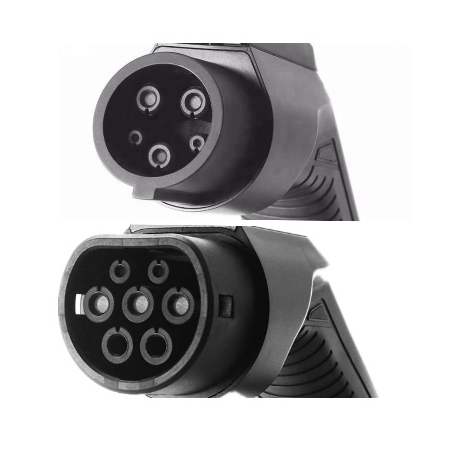Energy management and efficiency enhancement of home electric vehicle (EV) chargers are critical aspects of promoting sustainable transportation and minimizing the environmental impact of EVs. As the adoption of EVs increases, optimizing the charging process becomes essential to ensure grid stability, reduce electricity costs, and make the most efficient use of available energy resources. Here are some key considerations and strategies for energy management and efficiency enhancement of home EV chargers:
Smart Charging Infrastructure:
Implement smart charging solutions that allow communication between the EV charger, the EV itself, and the utility grid. This enables dynamic adjustment of charging rates based on grid demand, electricity prices, and renewable energy availability.
Use technologies such as demand response and vehicle-to-grid (V2G) to allow bidirectional energy flow between the EV battery and the grid. This can help balance grid loads and provide grid services.
Time-of-Use (TOU) Pricing:
Time-of-use pricing encourages EV owners to charge during off-peak hours when electricity demand is lower, reducing strain on the grid. Home chargers can be programmed to start charging during these periods, optimizing cost and grid utilization.
Renewable Energy Integration:
Integrate solar panels or other renewable energy sources with home EV chargers. This allows EVs to be charged using clean energy, reducing carbon emissions and dependence on fossil fuels.
Load Management and Scheduling:
Utilize load management systems to distribute electricity demand evenly throughout the day. This prevents spikes in energy consumption and minimizes the need for grid infrastructure upgrades.
Implement scheduling features that allow EV owners to set specific charging times based on their daily routines. This can help avoid simultaneous high loads on the grid.
Energy Storage:
Install energy storage systems (batteries) that can store excess energy during low-demand periods and release it during high-demand periods. This reduces the need for drawing power directly from the grid during peak times.
Efficient Charging Hardware:
Invest in high-efficiency EV charging equipment that minimizes energy losses during the charging process. Look for chargers with high power conversion efficiencies.
Energy Monitoring and Data Analysis:
Provide EV owners with real-time energy usage and cost data through user-friendly interfaces. This enables informed decision-making and encourages energy-conscious behavior.
Energy Rebates and Incentives:
Governments and utilities often offer incentives and rebates for installing energy-efficient charging equipment or integrating renewable energy sources. Take advantage of these programs to offset installation costs.
User Education and Engagement:
Educate EV owners about the benefits of energy-efficient charging practices and how they contribute to grid stability and sustainability. Encourage them to adopt responsible charging behaviors.
Future-Proofing:
As technology evolves, ensure that the charging infrastructure can adapt to new standards and protocols. This might involve software updates or hardware upgrades to improve compatibility and efficiency.
By implementing these strategies, homeowners and EV owners can play a crucial role in enhancing energy management and efficiency of home EV chargers, contributing to a more sustainable and resilient energy ecosystem.
7KW 32Amp Type 1/Type 2 Portable EV Charger with EU Power connector
Post time: Aug-18-2023










